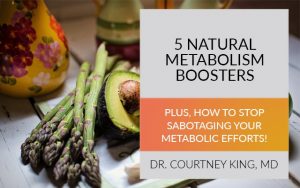At some point, we all have to cope with grey hair and wrinkles, however we choose to do so. The natural aging process in itself can be beautiful, but some of the hormone-related symptoms of aging can become much more problematic as one moves through the later years of life.
In general, women are used to undergoing various hormonal shifts in our bodies – we go through menstrual changes every month for most of our lives, and possibly deal with immense changes involved during pregnancy and birthing a child. And ALL of us go through the sharp ups and downs of adolescence, no matter who we are!!
But what about the later years in life?
Many women may begin to notice strange symptoms, such as brain fog, fatigue, irritability and mood swings after 35. Whether you know it or not, these may be symptoms of perimenopause. Perimenopause can begin YEARS before a woman stops menstruating!! Menopause is starting to happen earlier and earlier. I have had more than a few patients in full blown menopause by their early 40s.
Other symptoms of “the change” can include:
- Worsening premenstrual syndrome (PMS out of control!!)
- Hot flashes
- Breast tenderness
- Vaginal dryness and discomfort during sex
- Urine leakage when coughing or sneezing
- Brain fog
- difficulty losing weight despite proper diet and exercise
- difficulty staying asleep all night
But not everyone has to go through these negative changes in their health and happiness!! And not all women are affected. It depends on genetics to some degree, as well as your lifestyle along the way. The thought used to be that you would likely go into menopause around the age that your mother did, and that you would likely experience the same level of symptoms that she did. This is starting to go the way side, for a number of reasons.
We have a lot more toxic exposures than our mother’s did. Glyphosate was brought to market in 1974, GMO foods were rapidly introduced into mainstream in the ‘90s, and chemicals are in almost every product on the mainstream market.
Other negative lifestyle factors that can lead to earlier and more symptomatic hormonal changes include:
- Alcohol consumption
- Smoking
- Poor diet
- A lack of exercise
- Stress
Stress really plays a vital role. Stress drains your hormones and raises the likelihood that you’ll sleep poorly, gain weight, struggle to lose weight, and experience mood swings.

As we age, the female body naturally produces less progesterone and estrogen, which are responsible for our brain function, sex drive, and even skin texture (wrinkles!).
Because of these drops in hormones, and the symptoms that come along with their decline, some women choose to pursue synthetic hormone replacement therapy (HRT). However, this type of HRT has been deemed to be unsafe for longer term use, as it increases the risk of certain cancers. Its use is restricted to 5 years maximum. Only the smallest amount for the shortest amount of time is recommended. I recommend against it completely, since safer alternatives are available.
Thank Goodness there is a newer type of Hormone Replacement Therapy that, due to its negligible risks, has come into favor: Bioidentical Hormone Replacement Therapy (BHRT).
This type of treatment uses hormones with the same chemical structure as the hormones that are naturally found in our bodies. The body recognizes these hormones more efficiently and is able to use them in precisely the same way as the real thing! Bioidentical hormones are typically used transdermally (across the skin) in a compounded patch, gel or cream. They have been shown to be safer than the substances used in the synthetic hormone replacement therapies.
However, before you do consider taking bio-identical hormones, or any other type of HRT, to alleviate the symptoms associated with aging and the menopause, caution must be taken.
Be sure to work with a doctor that is well-schooled in this type of therapy. Get baseline urine, blood or saliva testing to evaluate your body’s natural hormone levels, and make sure you get all of your hormone levels tested regularly if undergoing HRT of any kind. Hormones work together in your body, so things like thyroid disease need to be well monitored throughout as well.
I also recommended finding a doctor that can also advise you on the appropriate lifestyle changes to support your body’s natural ability to produce and synthesize hormones. Certain types of hormone problems can point to nutrient and other deficiencies, so make sure to get a full Integrative Medicine workup to ensure you’re getting enough of everything you need. One particularly important nutrient to optimize is vitamin D. Did you know that Vitamin D is actually a hormone as well???
So, what’s the key to moving through your years gracefully as a mature woman? Taking good care of yourself, eating clean, avoiding toxins (or detoxing regularly), keeping your stress levels managed (meditation, good self-care), optimizing your vitamins and minerals, and seeking help to ensure you can keep your hormone levels as balanced as they can be.
Wishing you all graceful aging,
Dr. Courtney







Enjoying this information on BHRT. Hormones that are not synthetic but are the same natural chemicals our female bodies are use to can be very helpful to navigating menopause. The question arises when and for how long and how safe are they after menopause? We need more studies to understand the full impact of using hormones later in life.